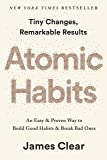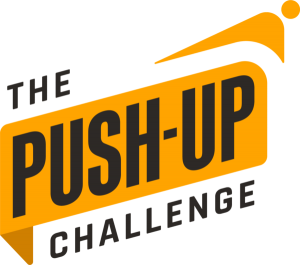Jun 01 2021
When Push Comes to Shove37 down. 888 to go.
 In Atomic Habits, James Clear outlines the strategies for making good habits stick.
In Atomic Habits, James Clear outlines the strategies for making good habits stick.
Ones of his ‘laws’ is to increase the negative consequences of not performing an action.
An accountability partner can create an immediate cost to inaction. We care deeply about what others think of us, and we do not want others to have a lesser opinion of us. A habit contract can be used to add a social cost to any behavior. It makes the costs of violating your promises public and painful.
Mat Buckley, our local exercise physiologist, is a fantastic coach. He may well be a disciple of James Clear.
 Mat has signed us up as a team (Toned Up) for the push up challenge. This runs for 25 days beginning today, and our team of two has contracted publicly to complete 3318 pushups over that time.
Mat has signed us up as a team (Toned Up) for the push up challenge. This runs for 25 days beginning today, and our team of two has contracted publicly to complete 3318 pushups over that time.
Lucky for me, Mat will do 100 per day, and I have to do 37.2. That is 37.2 more that I have done each day for the last 10 years.
There are posters announcing the project all over Alstonville. I have a whole town as accountability partner.
You can track the progress of ‘Toned Up’ here
The aim of the push up challenge is to promote mental health. The target of 3318 represents the number of suicides in Australia in 2019.
Founded by Nick Hudson and a team of volunteers in 2017, the Push Up Foundation has more than 130,000 participants and has raised over $7 million for mental health organisations. If you want to join the 129,999 who are better at push up than I am, you sign up today at The Push Up Challenge
There are a number of organisations that benefit from the project. We have chosen Lifeline (Go Sally!), but I haven’t yet worked out how they get anything out of the deal. I suspect I will have to sponsor myself.
James Clear would be happy to see that extra bit of accountability – paying money for a habit – although he would suggest I have to pay more if I don;t meet my target.
Each day, when you log your push ups on the app, you receive a new message about mental health.
This is today’s mental health message
- Day 1 – 130 push-ups
- More than 1/10 Australians will consider ending their life: Over a lifetime, around 13% of Australians between the ages of 16-85 will seriously consider suicide. 4% of people will make a plan, and just over 3% will make an attempt.
- Suicidality is the term used to describe the state of thinking about, planning, or attempting suicide. It affects more than 1/10 Australians, so it’s not uncommon. We know that suicidality is a strong risk factor for completing suicide, so it’s important that people experiencing suicidality receive assistance.
- Even though it can be tough, the evidence suggests that asking someone about whether they are experiencing suicidality, including plans or attempts, does not increase the likelihood of them completing suicide. Asking your friends and loved ones about what is going on for them can identify those at risk and increase the chances that the person gets help.
- You can get some advice on how to have a conversation about suicide here:
- https://www.beyondblue.org.au/the-facts/suicide-prevention/worried-about-someone-suicidal/having-a-conversation-with-someone-you%27re-worried-about


 He is worried about the future of your maximum taste. Is it true “that 70 percent of the people you know are more boring at 30 than they were at 20?”
He is worried about the future of your maximum taste. Is it true “that 70 percent of the people you know are more boring at 30 than they were at 20?” 



 RSS - Posts
RSS - Posts
